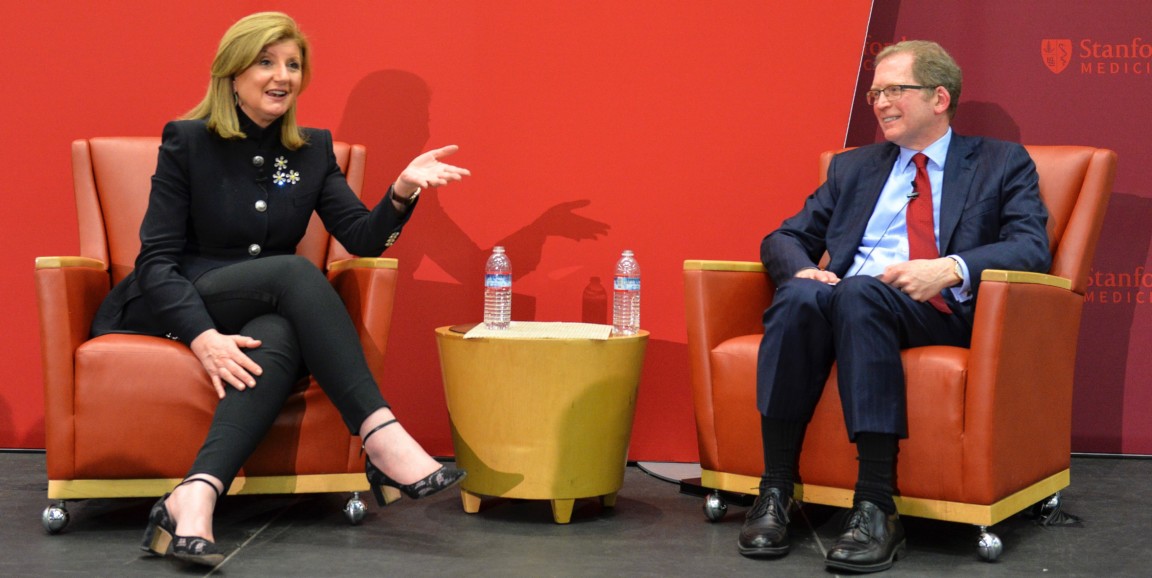Doctors and therapists often counsel their patients to prioritize health and wellness. Concerned family members frequently prod loved ones to sleep more, eat better or take time off. But entrepreneurs, even ones with as varied of backgrounds as Arianna Huffington's, just aren't known for evangelizing well-being.
Yet galvanizing others to adopt a healthy lifestyle is currently the most important thing Huffington feels she can do, she said during a conversation with Dean Lloyd Minor, MD, on campus last week.
And Huffington's message -- which she shares in a book and through her company, Thrive Global -- isn't to drop out and laze on the beach all day. It's that professional success, even excellence, can go hand-in-hand with health.
"Arianna offers a compelling alternative to the delusion that we must drive ourselves to exhaustion," Minor said in his introductory remarks.
Huffington explained that she's working with leaders from technology, sports and other industries to share stories showing that success doesn't have to result in burnout. She mentioned how the children of Philipp Schindler, chief business officer at Google, once asked if they could go to the playground with the babysitter instead of him, because he always spent his time there on the phone. It jarred him enough to share the story, and to make changes, hopefully inspiring others to do so as well.
"We are giving permission for the rest of the population to do life differently," Huffington told the audience.
Differently means prioritizing sleep, rather than cramming it in for a few hours between emails and texts. Differently means detaching from devices during key periods -- vacation, family dinners, before bed. Huffington said she tucks her cell phone into its own bed each night, replete with charging capability, so she can retire in peace to her own bed, cell-phone free. Differently is also countering the culture that spending more time on work leads to better outcomes and professional success.
That isn't easy, Huffington acknowledged.
"I recognize that it's hard for us to change such deep beliefs but through a combination of data and stories, I think we can get there," she said.
The timing for this message is right, Huffington said in response to a question from Minor.
"I think we are actually at this amazing inflection point where we are finally realizing that technology is a tool and how we use it and the boundaries we set around it are going to determine the lives we live," Huffington said, noting that there's growing evidence that cell phone and social media use are leading to higher rates of anxiety, depression and other ailments for both teens and adults.
The recent decline in public civility -- something Minor asked her to address -- also demonstrates the need for people to do things differently. Noting that bad behavior often stems from stress, she said, "We are finding out that when you are burned out, empathy and being able to be civil are some of the first things that go."
We are all "works in progress," she reminded the audience -- "but we can support one another and make changes by learning from each other and learning from new science."
Photo by Rod Searcey




